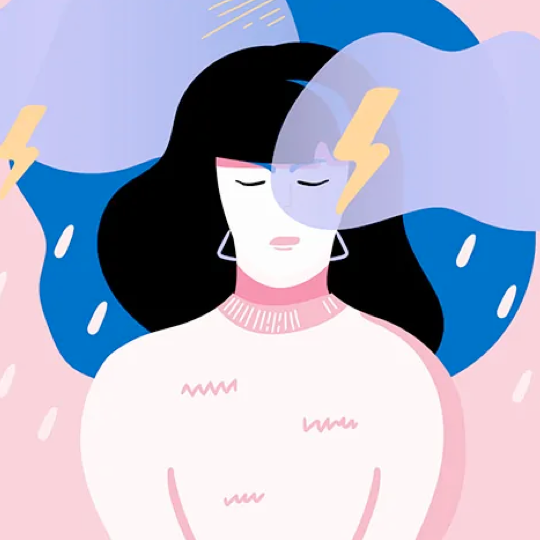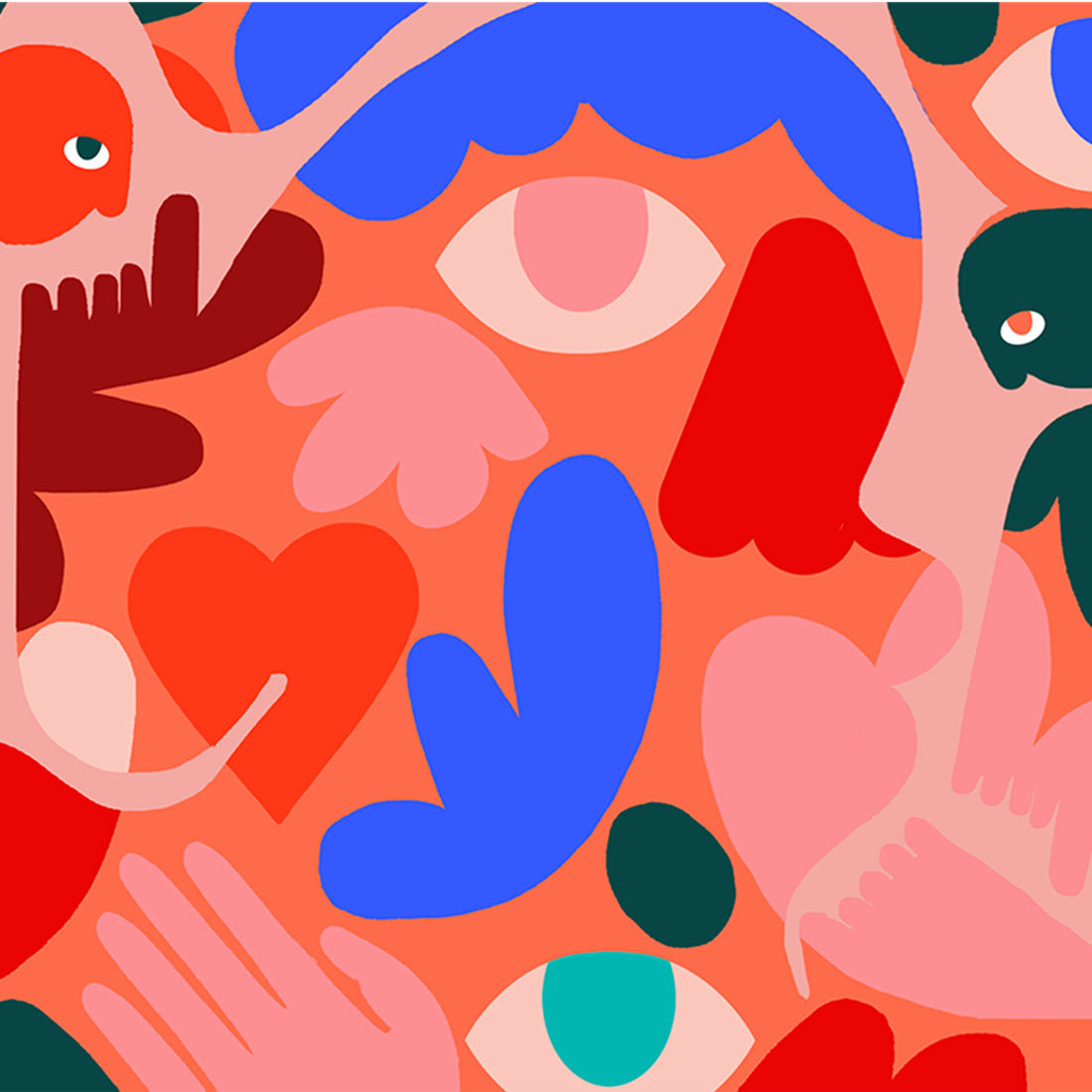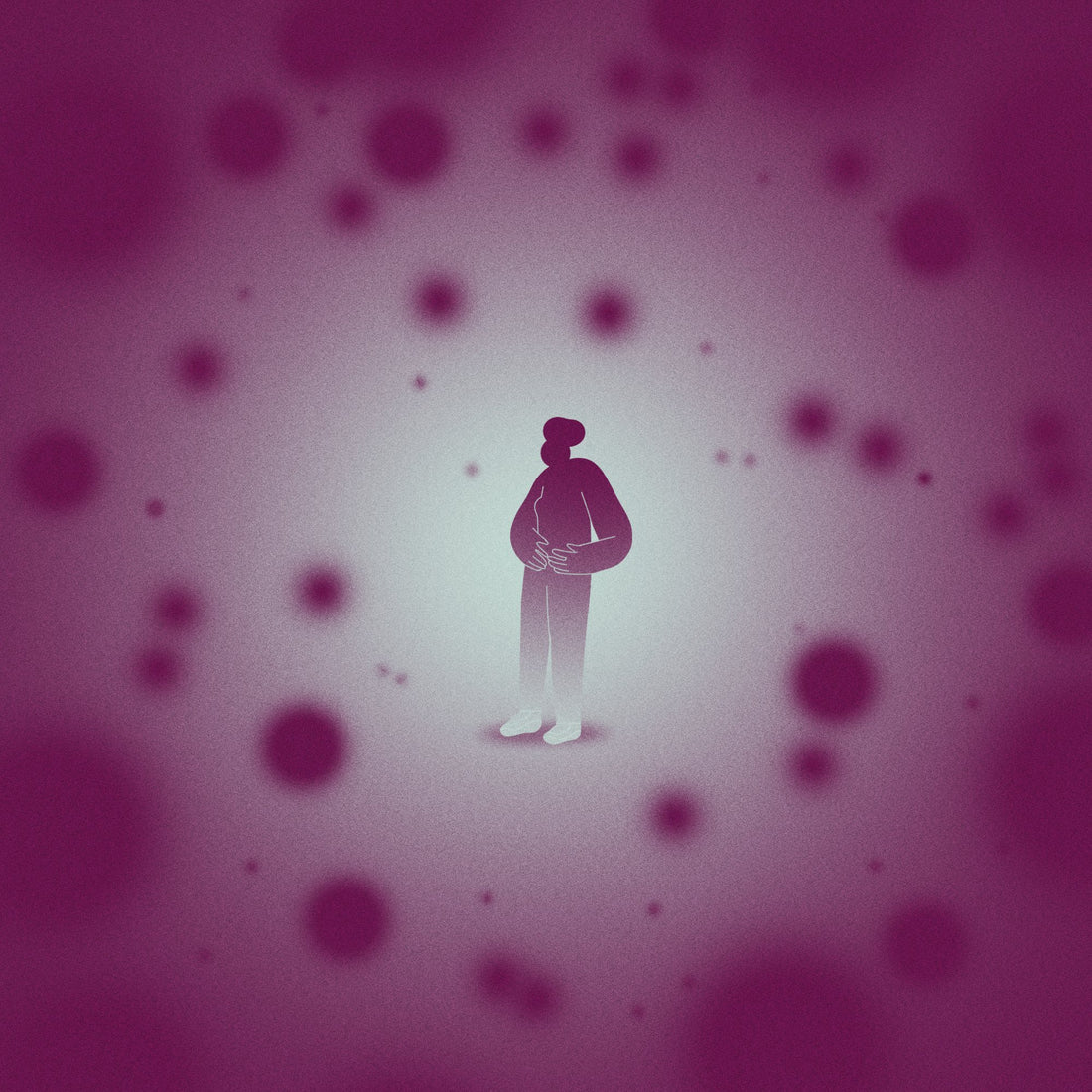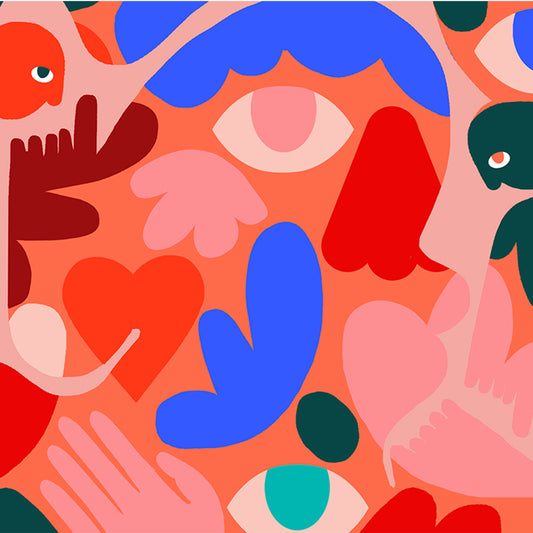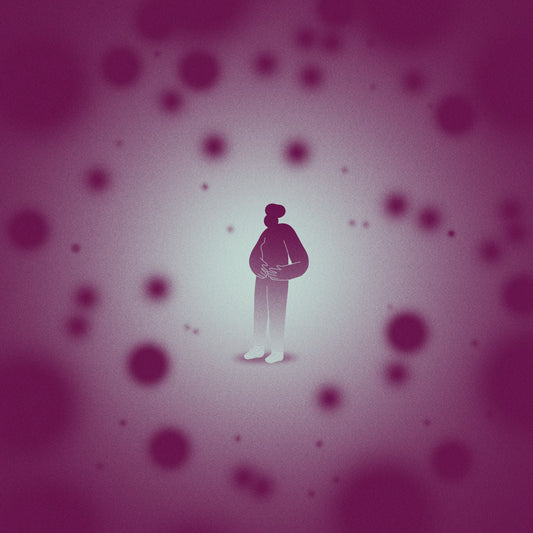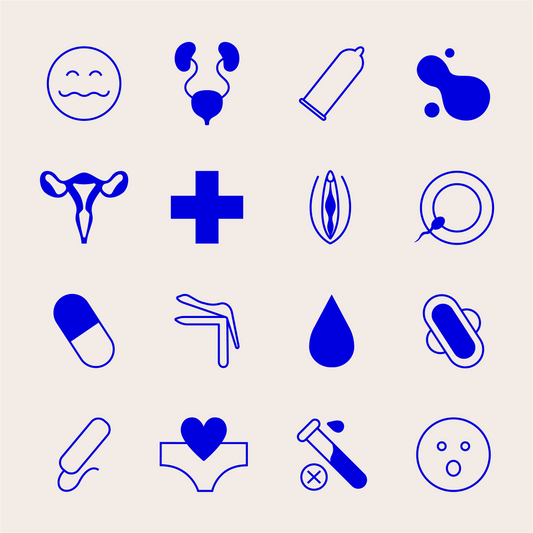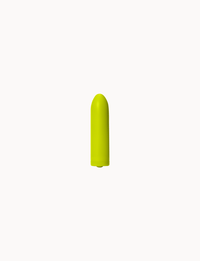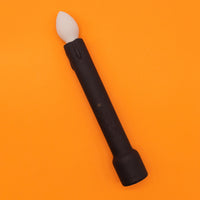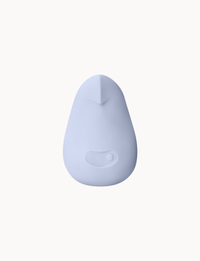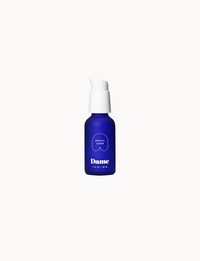Alexandra Fine, Credentialed Sexologist, M. Psych | Written by Dame
Understanding Libido | Vulva-Havers, Libido and Hormones | Libido, Health Issues and Medications | Low Libido and Mental Health | Low Libido, Stress and Personal Issues
It’s one of the oldest, most misogynistic punch lines in history.
“Not tonight – I have a headache!”
There are so many things wrong with the implications of that punch line that we could spend the rest of this article listing them.
The worst implication, of course, is that vulva owners are supposedly so disinterested in sex that they’ll make up stories just to get out of it. Another implication, however, is almost as bad: there’s no legitimate reason that they wouldn’t want sex.
The two-part truth is simple. Thankfully, even penis-having comedians are starting to understand it.
- Almost all humans, regardless of gender, want sex.
- Many humans, regardless of gender, suffer from low libido.
There’s a corollary, too: humans with vulvas are more likely to experience a decreased desire for sexual activity, because of the way their sex hormones work. Those with penises do naturally experience a slow decline in sex drive as they age, and other factors can cause their libidos to go haywire.
But low sexual desire is more likely to affect vulva-havers.
Let’s find out why it happens – and what can be done.
Understanding Libido
First things first. Just about everyone has a sex drive, even many who identify as asexual.
Just as importantly, everyone’s libido is different. Some have a constant urge for sexual activity and new sexual experiences, while some are just fine with a sex life that others might consider boring.
Those with a naturally-low sex drive can be just as happy and just as satisfied as those who are insatiable. In fact, they’re often happier, simply because they have one less need to satisfy regularly.
Think of it this way. Some people love ice cream, but others can go years without even giving it a thought. Craving ice cream – or craving sex – is just the way that some people are “built.”
In short, having a low libido isn’t necessarily an issue that needs to be addressed.
When low sexual desire causes mental anguish or relationship issues, however, it can be a big problem. Those who have lost their normal sex drive, or those whose libido is badly mismatched with their partner’s, understandably want to figure out what’s “wrong” and how to “fix it.”
That’s when low libido becomes a sexual health issue.
Vulva-Havers, Libido and Hormones
There are many possible reasons for low sexual desire, and we’ll be looking at all of them in this article. In vulva owners, though, one of the most common culprits is a hormone imbalance.
Research shows that low libido is the sexual dysfunction complaint most commonly heard by specialists in “women’s health.” It’s third on the sexual problems list for penis-havers, below erectile dysfunction and premature ejaculation.
Why the difference? To repurpose another misogynistic punch line, it’s probably hormones.
Hormone Balance in Vulva-Havers: It’s Complicated
In both assigned-at-birth genders, sexual function and desire depend primarily on sex hormones: estrogen, testosterone and progesterone. However, there’s a big difference in the natural fluctuation of each gender’s hormone levels.
Testosterone is the most important sex hormone for penis owners, whose testosterone levels normally remain steady until they reach age 30 or so. After that, available testosterone declines by about one percent per year; that’s why their sex drive often begins to decline as they age.
Things are much more complicated for vulva owners. Their estrogen and progesterone levels rise and fall regularly during every menstrual period.
Estrogen levels rise when the body approaches peak fertility, in order to prepare the uterus for a fertilized egg. As that happens, however, a vulva-haver’s sex drive usually increases as well. Why? Estrogen causes an increase in libido, so the release of the hormone may also be meant to encourage sexual activity that would lead to reproduction.
By contrast, estrogen levels fall toward the end of the menstrual cycle, while more progesterone is released. Progesterone helps a fertilized egg become implanted in the uterus, and supports early growth of the embryo. But high progesterone levels do something else, too. They cause bloating, fatigue and PMS, all of which can certainly make someone a lot less eager to have sex.
In short, the menstrual cycle causes libido to increase and decline every four weeks until menopause, when estrogen levels fall dramatically. As a result, menopausal vulva owners often experience issues like vaginal dryness, hot flashes, pain during penetration – and a lower sex drive. For that reason, gynecologists are likely to prescribe estrogen therapy for their patients in or after menopause.
There are other times that vulva-havers experience changes in their hormone levels. During pregnancy, estrogen and progesterone levels increase steadily; estrogen then drops dramatically after childbirth and can remain low throughout breastfeeding. By contrast, “premenopausal women” taking birth control pills or using other hormonal contraceptive methods will have relatively steady estrogen levels, because that’s what the birth control is designed to do.
It’s all a delicate hormonal balancing act, and it’s a major reason why vulva-havers’ sexual interest often fluctuates noticeably. Their bodies are designed to go through hormonal ups and downs. But it’s also why they may be much more susceptible than penis-havers to hormonal imbalances that can cause a problematically low libido.
Causes and Treatments for Abnormal Hormone Levels
We’ve learned that low estrogen can cause a low libido. But levels of the hormone regularly rise and fall during the menstrual cycle, pregnancy, breastfeeding and menopause. What can happen that would cause an unnaturally low level of estrogen?
External factors like stress can have an impact, and we’ll be discussing that in a bit. But any medical issue that affects the body’s endocrine system – which secretes and releases hormones – can also affect normal hormone levels. That covers a lot of ground; the endocrine system includes the ovaries and thyroid gland, as well as the hypothalamus, pituitary gland and adrenal glands.
One of the primary culprits affects the ovaries. It’s polycystic ovary syndrome (PCOS), suffered by as many as 20% of pre-menopausal vulva-havers. Thyroid and eating disorders, as well as ovarian cancer, can also cause low estrogen levels.
Hormone levels are easy to check with a simple blood test. Treatment is a little tougher.
Changes in diet, and herbal over-the-counter supplements like Avlimil, may help increase estrogen levels in the body – and boost a low libido. More often, though, doctors suggest the same type of hormone therapy that they prescribe during and after menopause; estrogen creams, pills, shots and inserts are all treatment options. Physicians may also prescribe testosterone supplements for vulva owners, but they’re somewhat controversial because of the side effects that may accompany their use.
Libido, Health Issues and Medications
Hormone imbalance is a common cause of low libido in vulva-havers, but it’s certainly not the only possibility.
A number of health conditions can lead to a decreased sex drive. A small but representative list: diabetes, kidney disease, heart disease, stroke, HIV and brain cancer. More often, low sexual desire can be blamed on lifestyle issues including smoking, excess drinking, drug use and obesity; obesity is a particular issue for those with vulvas, because it can contribute to the development of PCOS and the hormone problems that it can cause.
We’ve left one important lifestyle issue off that list: stress. That’s because we’ll be discussing it separately, a bit later on.
Medications are another possible cause of low libido. The worst offenders are antidepressants, most of which are known to carry sexual side effects. SSRIs (selective serotonin reuptake inhibitors) like Lexapro and Paxil are the “worst of the worst,” but MAOIs and other popular classes of antidepressants can also cause a loss of sex drive. So can opioid pain meds, anti-anxiety medications like Xanax, some types of steroids, and a number of drugs commonly prescribed for high blood pressure and heart disease.
Low Libido and Mental Health
Depression commonly causes people to lose interest in their daily activities, so it’s no surprise that researchers have found a strong link between depression and a low libido. A combination of psychotherapy and medication can often resolve the problem. (Naturally, doctors must be careful when prescribing antidepressants, for the reasons we’ve mentioned above.) Therapy can also help with anxiety, poor body image, low self-esteem and other mental health concerns that may be interfering with the desire for sex.
Some vulva-havers’ diminished sex drives simply can’t be explained or diagnosed. Those cases are often treated as mental health issues known as hypoactive sexual desire disorder (HSSD) or sexual aversion disorder (SAD). The first is characterized by a lack of sexual desire and a lack of sexual thoughts and fantasies; the second is identified by a complete avoidance of any sexual genital contact.
The FDA (U.S. Food and Drug Administration) has approved two medications for the treatment of HSSD and SAD. Addyi (flibanserin) is a once-a-day pill, and Vyleesi (bremelantonide) is a self-injected medication taken just before sex. Neither has been approved for “postmenopausal women.”
There’s one other approach that’s been shown to work wonders: a placebo. In one study, for example, sexual function and desire was restored to “normal” levels when patients were given a placebo instead of the promised “medication.”
Low Libido, Stress and Personal Issues
We’ve left the “easiest” for last.
Actually, that’s not fair. These problems, which often cause or contribute to a drop in sexual desire, aren’t necessarily “easy” to solve. Our point is that they usually don’t require a visit to a primary care doctor, a gynecologist, an endocrinologist, a pharmacy or a mental health specialist.
The major outside issue that can affect sex drive is stress. We all experience it regularly, whether it’s due to pressure at work, at home, or caused by difficulties in a relationship. And research shows that an increase in the stress hormone cortisol is associated with lower sexual function and desire. There are also studies showing that anxiety, possibly related to worries about sexual performance, can cause a lower sex drive.
Lowering stress levels is one good way to increase libido. That might require some difficult decisions about job or personal responsibilities, or some difficult discussions with a significant other. If the stress or anxiety revolves around tension in the bedroom, a renewed focus on touching, intimacy, communication and foreplay – rather than simple reliance on penetration and sex toys – may help to reset the dynamics.
It’s important to realize, of course, that there are times that everyone needs help. Career or financial counseling may be in order for serious personal stressors, and couples or marriage therapy may be necessary for severely troubled relationships.
There’s one other factor to consider. Paying greater attention to some of the lifestyle libido-killers we’ve discussed, like smoking, alcohol and drug use, plus a healthier diet and more exercise, can work in conjunction with stress- and anxiety-reduction to jumpstart libido.
Resolving these personal issues can do more than just boost sex drive. It may also lead to greater personal happiness and satisfaction, a rejuvenated relationship, and better overall health and well-being.
